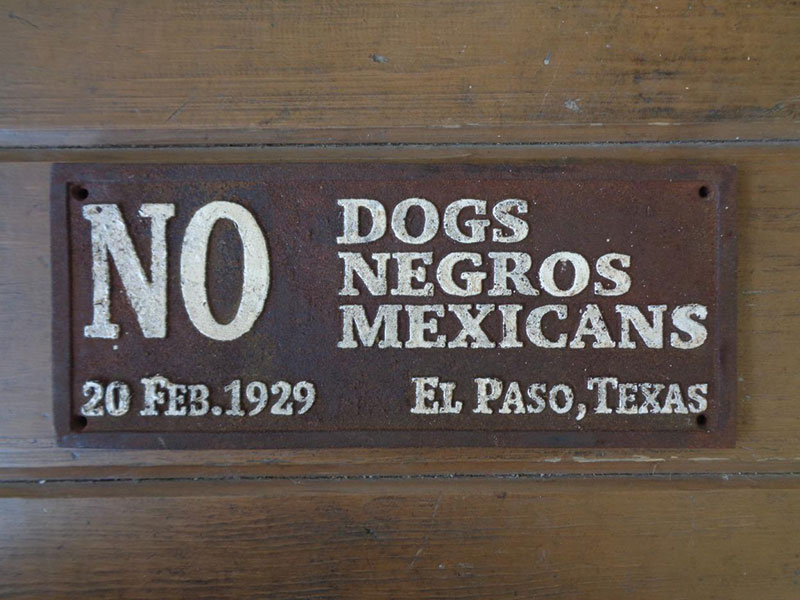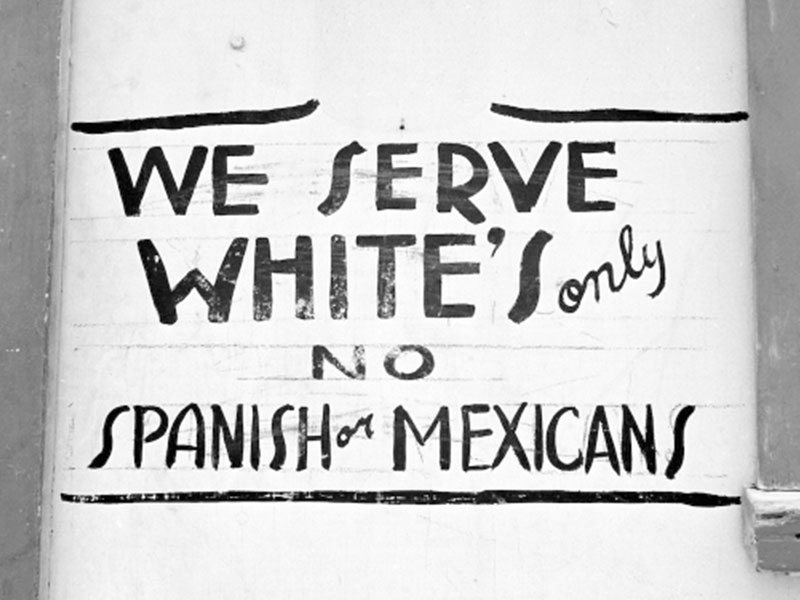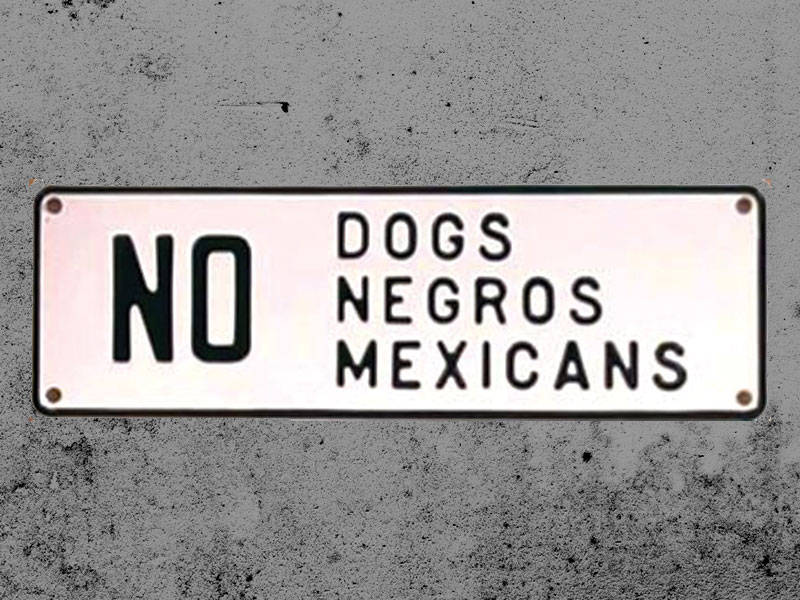The history of segregation in the United States is a dark tale of discrimination and injustice, affecting various communities. While the struggles of African Americans during the era of segregation are well-documented, the experiences of Mexicans in the midst of this divisive period are equally significant yet often overlooked.
“No Dogs or Mexicans Allowed” stands out as a stark testament to the struggles faced by marginalized communities and reflects a dark chapter in the history of the United States, shedding light on the systemic racism and xenophobia that have plagued society.

A Historical Perspective
The roots of the infamous phrase can be traced back to the early 20th century, a time when anti-Mexican sentiment and racial segregation were widespread in the United States. The discriminatory practice of denying entry to Mexicans in public establishments mirrored the broader racial segregation prevalent in the country during that period. This overt form of racism served as a painful reminder of the challenges faced by Mexican-Americans in their pursuit of equality.
The Intersectionality of Discrimination
The discriminatory phrase not only targeted individuals of Mexican descent but also underscored the intersectionality of racism, as it was often coupled with anti-Latino sentiments. The derogatory use of the term “Mexicans” served as a blanket label for a diverse group of people, reinforcing harmful stereotypes and contributing to the marginalization of Latino communities.

Impact on Mexican-American Communities
The “No Dogs or Mexicans Allowed” sign, when displayed, not only denied access to public spaces but also symbolized the exclusion of Mexican-Americans from the broader fabric of society. It perpetuated a cycle of inequality, limiting economic opportunities, social integration, and access to education for Mexican-American individuals and families.

Legacy and Modern Implications
While overt displays of racial segregation have diminished over time, the legacy of such discriminatory practices persists in subtle ways. The echoes of “No Dogs or Mexicans Allowed” can be seen in contemporary debates over immigration policies, racial profiling, and the challenges faced by Latinx communities in the United States. Understanding this historical context is crucial for addressing present-day issues and fostering a more inclusive society.
The Path to Healing
Recognizing the significance of “No Dogs or Mexicans Allowed” requires acknowledging the deep-rooted prejudices that have shaped our history. By learning from the mistakes of the past, we can work towards dismantling systemic racism and fostering an environment where diversity is celebrated rather than suppressed. Education, empathy, and open dialogue are essential tools in dismantling the barriers that perpetuate discrimination and inequality.



